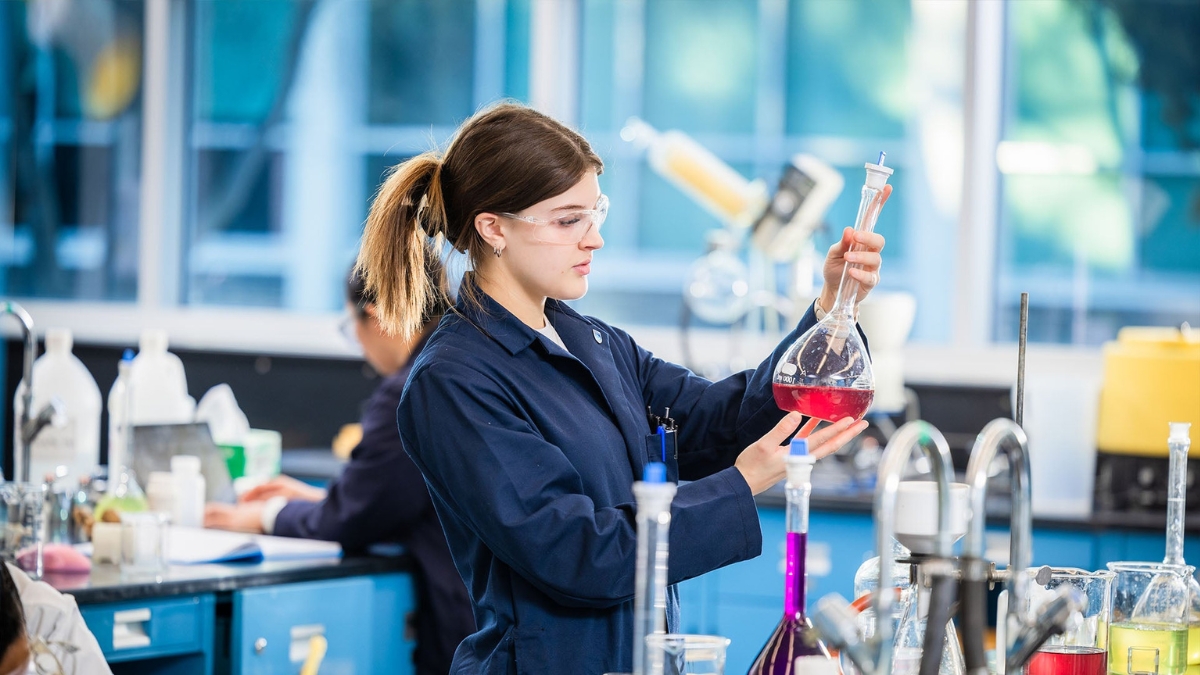Chemical technology stands at the heart of modern civilization, quietly powering everything from the smartphone in your pocket to the medicines that keep you healthy. This fascinating field combines chemistry with engineering principles to create processes and products that have revolutionized how we live, work, and interact with our environment.
What is Chemical Technology?
Chemical technology refers to the application of chemical knowledge and processes to develop, manufacture, and improve products on an industrial scale. It bridges the gap between laboratory discoveries and real-world applications, transforming theoretical chemical reactions into practical solutions that benefit society.
This multidisciplinary field encompasses the design of chemical processes, the development of new materials, and the optimization of production methods. Chemical technologists work to make processes more efficient, cost-effective, and environmentally friendly while ensuring product quality and safety standards are met.
The scope of chemical technology extends far beyond traditional chemical manufacturing. It includes biotechnology, materials science, environmental engineering, and nanotechnology, making it one of the most versatile and impactful fields in modern science and engineering.
Historical Development of Chemical Technology: From Alchemy to Innovation
The roots of chemical technology trace back thousands of years to ancient civilizations that developed techniques for metalworking, brewing, and dyeing. However, the modern era began during the Industrial Revolution of the 18th and 19th centuries.
The late 1700s marked a turning point with the development of the first large-scale chemical processes. The production of sulfuric acid, known as the “king of chemicals,” became the foundation of industrial chemistry. This period saw the emergence of companies like BASF and DuPont, which remain industry leaders today.
The 20th century brought explosive growth in chemical technology. The discovery of synthetic polymers led to the plastics revolution, while advances in petrochemicals provided raw materials for countless products. The development of catalysts made previously impossible reactions economically viable, opening new frontiers in manufacturing.
Recent decades have witnessed the rise of green chemistry, nanotechnology and biotechnology, pushing chemical technology into exciting new territories. These technological advancements continue to reshape industries and create sustainable solutions for global challenges.
Industrial Applications: Powering Modern Life
Chemical technology’s industrial applications are vast and diverse, touching virtually every aspect of modern life. Understanding these applications helps illustrate the field’s tremendous impact on society.
Pharmaceuticals and Healthcare
The pharmaceutical industry relies heavily on chemical technology to develop and manufacture life-saving medications. Advanced synthesis techniques enable the production of complex drug molecules, while process optimization ensures consistent quality and reduces costs. Biotechnology applications have revolutionized drug discovery, leading to personalized medicines and targeted therapies.
Chemical technology also plays a crucial role in medical devices, from biocompatible materials for implants to advanced diagnostic tools. The recent development of mRNA vaccines for COVID-19 showcases how chemical technology can rapidly respond to global health challenges.
Energy and Fuels
The energy sector depends on chemical technology for everything from oil refining to renewable energy systems. Petrochemical processes convert crude oil into gasoline, diesel, and countless other products. Meanwhile, advances in battery technology and fuel cells are driving the transition to cleaner energy sources.
Chemical catalysts make energy production more efficient and environmentally friendly. For example, catalytic converters in vehicles reduce harmful emissions, while industrial catalysts enable cleaner fuel production processes.
Materials and Manufacturing
Chemical technology has revolutionized materials science, creating everything from lightweight composites used in aerospace to smart materials that respond to environmental changes. Polymer science has produced plastics with tailored properties for specific applications, from food packaging to medical devices.
Advanced manufacturing processes like 3D printing rely on specially formulated chemical materials. Nanotechnology applications create materials with unprecedented properties, opening new possibilities for electronics, construction, and consumer goods.
Agriculture and Food Production
Modern agriculture would be impossible without chemical technology. Fertilizers boost crop yields to feed growing populations, while pesticides protect harvests from pests and diseases. Food processing techniques preserve nutrients and extend shelf life, reducing food waste and improving food security.
Biotechnology applications in agriculture include genetically modified crops and precision farming techniques. These sustainable solutions help maximize agricultural productivity while minimizing environmental impact.
Recent Technological Advancements
Chemical technology continues to evolve rapidly, driven by global challenges like climate change, resource scarcity, and population growth. Recent advancements are particularly focused on sustainability and efficiency.
Green Chemistry Revolution
Green chemistry principles are transforming how chemical processes are designed and operated. This approach minimizes waste, reduces energy consumption, and eliminates toxic substances. Catalytic processes that work under mild conditions are replacing harsh, energy-intensive methods.
Solvent-free reactions and water-based processes are reducing environmental impact while maintaining product quality. These sustainable solutions are becoming industry standards as companies recognize both environmental and economic benefits.
Artificial Intelligence and Automation
Machine learning and artificial intelligence are revolutionizing chemical technology. AI algorithms can predict optimal reaction conditions, design new molecules, and optimize manufacturing processes. This technology accelerates research and development while reducing costs and improving safety.
Automated systems enable precise control of complex chemical processes, ensuring consistent quality and reducing human error. Digital twins of chemical plants allow operators to simulate and optimize operations before implementing changes.
Biotechnology Integration
The integration of biological systems with traditional chemical processes is creating new possibilities. Enzyme catalysts offer high selectivity and mild reaction conditions, while fermentation processes can produce chemicals from renewable feedstocks.
Synthetic biology techniques enable the design of microorganisms that can produce valuable chemicals from simple inputs. This approach offers sustainable alternatives to petroleum-based chemistry.
Environmental Impact and Sustainability
Chemical technology’s relationship with the environment is complex and evolving. While some past practices caused environmental problems, modern chemical technology is increasingly focused on sustainability and environmental protection.
The industry has made significant strides in reducing emissions, minimizing waste, and developing safer chemicals. Life cycle assessments help evaluate the environmental impact of products from cradle to grave, driving improvements in sustainability.
Circular economy principles are being adopted throughout the chemical industry. Waste streams are being converted into valuable products, and recycling technologies are enabling the recovery of materials that were previously discarded.
Carbon capture and utilization technologies are turning greenhouse gases into useful chemicals, helping address climate change while creating economic value. These sustainable solutions demonstrate how chemical technology can be part of environmental solutions rather than problems.
The Future of Chemical Technology
Chemical technology continues to evolve, promising exciting developments that will further transform our world. Emerging technologies like quantum computing and advanced materials science will open new frontiers in molecular design and process optimization.
The integration of chemical technology with digital technologies will create smart manufacturing systems that can adapt in real-time to changing conditions. This convergence will lead to more efficient, sustainable, and flexible chemical processes.
As global challenges like climate change and resource scarcity intensify, chemical technology will play an increasingly important role in developing solutions. From carbon-neutral fuels to biodegradable plastics, the field continues to innovate for a sustainable future.
Chemical technology remains a driving force behind human progress, transforming scientific discoveries into practical solutions that improve lives and protect our planet. Its continued evolution promises even greater contributions to society in the years ahead.











